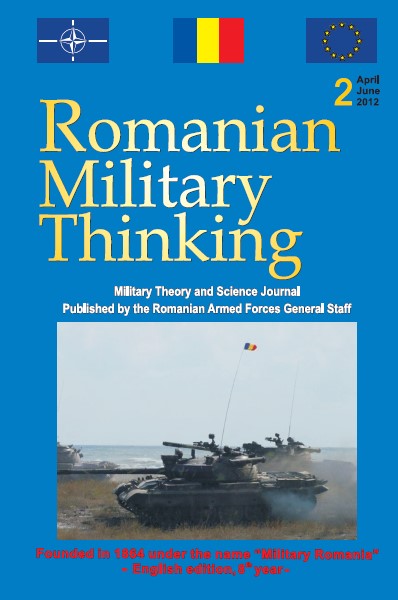IMPLICATIONS OF THE LISBON TREATY FOR THE DECISION-MAKING PROCESS REGARDING THE PARTICIPATION OF THE ROMANIAN ARMED FORCES IN EU-LED MILITARY OPERATIONS
IMPLICATIONS OF THE LISBON TREATY FOR THE DECISION-MAKING PROCESS REGARDING THE PARTICIPATION OF THE ROMANIAN ARMED FORCES IN EU-LED MILITARY OPERATIONS
Author(s): Liviu PopelContributor(s): Iulia NASTASIE (Translator)
Subject(s): Security and defense, Military policy, Peace and Conflict Studies
Published by: Centrul tehnic-editorial al armatei
Keywords: crisis management; humanitarian and rescue missions; strategic planning; Lisbon Treaty; Athena mechanism;
Summary/Abstract: The entry into force of the Treaty of Lisbon, on 1 December 2009, confirms the rising trend of the community development in the field of foreign action, regarding security and defence, and will bring about the increase in the coherence and efficiency of the Union actions in these domains. The new types of EU missions and operations stipulated by the Treaty of Lisbon determine, at least for the forces committed to the EU, changing the procurement of troops and adapting the forces training programme for them to meet the requirements specific to these operations. The participation with forces and capabilities in operations in 2012 and in the future will continue the efforts towards the fulfilment of certain engagements and responsibilities that devolve upon us as a member of the Alliance, within the EU Common Security Defence and Policy as well as in the context of other international security organisations (UN and OSCE).
Journal: Romanian Military Thinking
- Issue Year: 2012
- Issue No: 2
- Page Range: 107-119
- Page Count: 13
- Language: English

